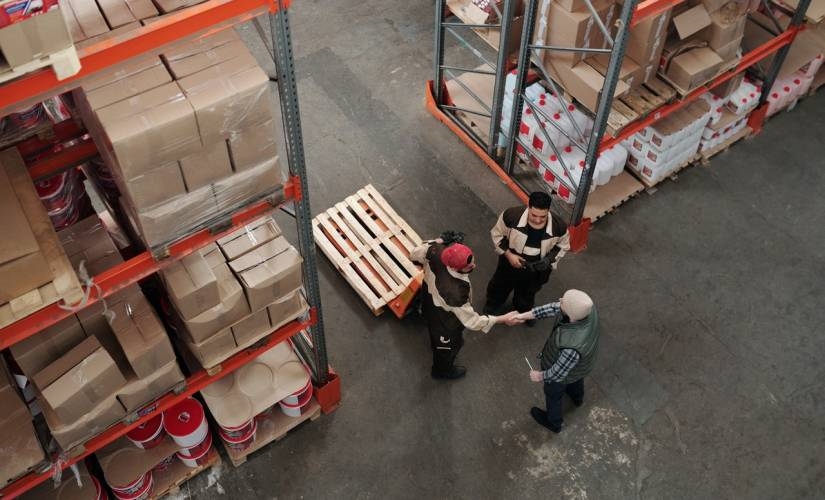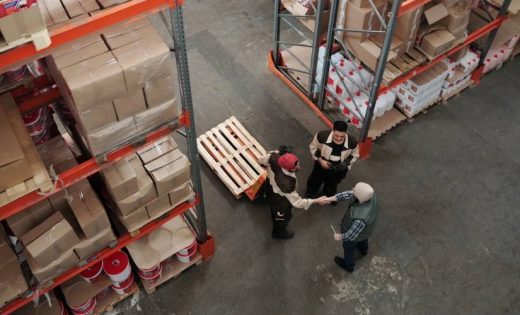How Wholesale in Different Industries is Making a Difference
How Wholesale in Different Industries is Making a Difference

Wholesale businesses have a lot going for them. They help keep the wheels of commerce greased and keep the supply chain functioning, barring global catastrophe. No matter the industry, wholesalers can help most companies save money and grow their businesses.
What is Wholesale?
Before we dive too deep into the topic at hand, let’s establish a definition of what we mean by the term “wholesale.” Generally speaking, wholesale refers to a type of business that sells goods in bulk to other businesses. As opposed to a retail business, wholesale businesses sell to other business entities, not directly to consumers.
Wholesalers often establish long-term, reputable relationships with particular retailers.
Thanks to these relationships, the wholesale market is booming. In June 2021 alone, total U.S. sales for the wholesale market topped $ 588 billion. After a sharp dip in earnings at the beginning of the Covid-19 pandemic, wholesale businesses’ monthly sales have since been on a steady upward trajectory.
Wholesalers offer their customers greater ease of operations, diverse offerings, and — in most circumstances — access to products from across the globe.
As these increased sales demonstrate, more and more companies are choosing to conduct business with wholesalers. From apparel and lifestyle to food to medical and pharmaceutical supplies, wholesale businesses run the gamut.
However, in each of these industries, wholesalers are making a difference and bringing about real change in the world. Consider the three points listed below as a great starting point for learning why this is true.
1. Apparel Wholesale Platforms Are Helping Emerging Brands
The arrival of the coronavirus put a lot of pressure on local businesses. Visting tourists, shoppers, and regular customers stayed home either by mandate or by choice. Everything from coffee houses to flower shops to corner stores to independent bookstores took a hit during the onset of the pandemic.
Caught between local health restrictions and a temporarily foundering global supply chain, many small businesses brands were devastated in 2020.
Today, however, wholesale women’s apparel marketplaces are helping emerging brands make a comeback. Bridging the gap between local shops and independent brands worldwide, these marketplaces provide a way to bring emerging brands to retail shops everywhere.
These wholesale marketplaces also help provide retailers access to artisanal brands. This enables these brands’ unique products to get into shops they maybe wouldn’t have been able to before.
In many ways, apparel and lifestyle wholesale platforms establish a clear, direct path for entrepreneurial brands to make their way onto the shelves of independent, local stores. Newer brands have a chance to establish themselves despite the setbacks of the past 18 months.
These Wholesale Marketplaces are a Win-Win for Businesses — Especially Local
Considered more widely, these marketplaces provide a win-win situation all around. Apparel wholesale platforms give independent brands the ability to reach hundreds of thousands of retailers in a cost-effective way. And local boutiques — who often have to compete with chain stores such as Target and H&M — also get access to more unique, high-quality styles.
2. Food Wholesalers Are Helping Allergy-Friendly Businesses Thrive
Starting a new food company is no mean feat. Despite the considerable challenges of market penetration, more than 15,000 new food products are introduced each year. The failure rate of these new businesses is high, so any support these businesses can get from wholesale businesses is crucial to their success.
Niche Food Markets — Building Business and Meeting Consumer Demand
Many of these newer food businesses are homing in on niche or specific diet types as food allergy rates continue to climb. An increasing number of adults and children are dealing with allergies, mostly from offenders such as gluten, dairy, eggs, nuts, and soy. As a result, food companies are reformulating their products and coming up with new allergy-friendly food lines to meet the rise in consumer demand.
This is all good news to food wholesalers focused on expanding their catalog of diet-specific or allergy-friendly offerings.
By allowing grocery store buyers to search for items based on diet type and/or food ingredients, wholesalers can reliably provide products they know consumers are regularly seeking in the aisles of their local grocery stores.
One wholesaler offering just this sort of expanded capability is Mabel. This online food wholesale ordering business goes one step further, however, offering products based on region, dietary need, and brand value. Mabel also includes women-owned, small-batch, and eco-friendly brands.
Food wholesalers focused on diet and allergy needs are changing the way niche food companies’ products make their way into consumers’ hands.
3. Medical Supply Wholesalers Working to Create More Streamlined Services
The medical supply wholesale industry is not to be overlooked, particularly when you consider its massive growth and size. Currently, the medical supplies wholesaling industry in the United States is worth over $ 268 billion and has seen 3.8% growth this year.
America’s Massive National Health Needs
These numbers perhaps aren’t that surprising given Americans’ burgeoning medical needs as a sizeable chunk of its population ages. In fact, the average American spent over $ 11,000 on medical expenses, and that number was announced before the pandemic struck.
Fortunately, medical supply distributors understand this growing need and are making changes for the better.
One such example is Cardinal Health, one of the United States’ top medical supply distributors. Cardinal Health provides specialized medical products and pharmaceutical drugs to more than 85% of U.S. hospitals. Cardinal Health recently announced a partnership with Chronicled, a blockchain-powered network in the life sciences industry.
Partnerships such as the one with Chronicled and Cardinal Health will streamline processes and operations across the supply chain, thereby better connecting pharmacy suppliers with customers.
This certainly isn’t the first large-scale partnership in the medical supply wholesale industry. Nonetheless, it provides a high-visibility example of how wholesalers can grow their business by working with partners toward a common goal.
Consider, for example, the pandemic-fueled demand over the course of the past 18 months for personal protective equipment (PPE). This dilemma, faced by nearly every hospital system around the world, could potentially have been avoided or fixed more quickly with a more streamlined, technology-driven process.
The Takeaway
The wholesale market offers businesses of all sizes a tremendous number of advantages. Buying wholesale can be more cost-effective, of course. It can also assist businesses looking to expand their merchandise offerings, appeal to more consumers, and increase their overall sales.
Because wholesalers typically only sell to retailers and not directly to consumers, they enable those retailers to be the source of specialized goods.
The leaders of the wholesale market are impacting the sales model worldwide and shouldn’t be ignored. As the savvy intermediaries between the producer and seller, these three examples show how wholesalers can make a notable difference in how consumers gain access to the goods they want and need.
Image Credit: tiger lily; pexels; thank you!
The post How Wholesale in Different Industries is Making a Difference appeared first on ReadWrite.
(37)


